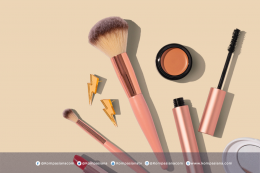Hello! In the blog section of this outline, we will start with an introduction that provides a brief overview of the topic of acne. We will discuss what acne is, its causes, and common misconceptions surrounding it. Following that, we will delve into the importance of understanding acne. We will explore how acne can impact one's self-esteem, mental health, and overall well-being. By understanding acne better, individuals can make informed decisions about their skincare routine and seek appropriate treatment. Stay tuned for more insightful information on this topic!
In this blog section, we will explore the topic of acne in detail. We will begin by defining acne, which is a common skin condition that occurs when hair follicles become clogged with oil and dead skin cells, leading to the formation of pimples, blackheads, and whiteheads. Next, we will discuss the various causes of acne, including hormonal changes, genetics, diet, and lifestyle factors. Understanding these causes can help individuals better manage and prevent acne breakouts.
Additionally, we will delve into the different types of acne, such as blackheads, whiteheads, and cystic acne. Blackheads and whiteheads are non-inflammatory types of acne that result from clogged pores, while cystic acne is a more severe form characterized by deep, painful cysts beneath the skin. By identifying the specific type of acne one is experiencing, individuals can tailor their skincare routine and treatment plan accordingly. Stay tuned for more information on how to effectively manage and treat different types of acne.
In this blog section, we will explore the various factors that contribute to the development of acne. Firstly, we will discuss hormonal changes and how fluctuations in hormones, especially during puberty, can lead to an increase in sebum production and clogged pores, resulting in acne breakouts. Next, we will delve into the role of genetics in acne development, as individuals with a family history of acne may be more prone to experiencing this skin condition. Additionally, we will examine the impact of diet and lifestyle on acne, highlighting how certain foods, stress levels, and habits like smoking can exacerbate acne symptoms. Lastly, we will touch upon the importance of skincare products in managing acne, emphasizing the need for non-comedogenic products that won't clog pores and irritate the skin. By understanding these contributing factors, individuals can take proactive steps to prevent and treat acne effectively. Stay tuned for more insights on managing acne through addressing these key factors.
In this blog section, we will debunk common myths surrounding acne and separate fact from fiction. Acne is a prevalent skin condition that often comes with a lot of misconceptions. We will address these myths and provide evidence-based information to help readers better understand acne and how to effectively manage it. Some of the myths we will debunk include the idea that acne is caused by poor hygiene, the belief that only teenagers get acne, and the misconception that sun exposure can cure acne. By dispelling these myths and providing accurate information, we aim to empower individuals to make informed decisions about their skincare routine and treatment options. Stay tuned as we uncover the truth behind common myths about acne.
In this blog section, we will explore various treatment options available for managing acne. Firstly, we will discuss over-the-counter products, such as cleansers, spot treatments, and topical creams containing ingredients like benzoyl peroxide or salicylic acid, which can help to reduce acne symptoms. Next, we will delve into prescription medications, including oral antibiotics, retinoids, and hormonal treatments, which are often recommended for more severe cases of acne. Additionally, we will explore dermatological procedures like chemical peels, laser therapy, and extraction techniques that can be performed by a dermatologist to target stubborn acne lesions. By understanding the different treatment options available, individuals can work with their healthcare provider to develop a personalized acne management plan that suits their needs. Stay tuned for more insights on effective treatment options for acne.
In this blog section, we will share valuable skincare tips specifically tailored for individuals with acne-prone skin. We will start by discussing proper cleansing techniques, emphasizing the importance of gentle cleansing to avoid irritating the skin and exacerbating acne. We will also provide guidance on choosing the right skincare products, such as non-comedogenic and oil-free options that won't clog pores or trigger breakouts. Additionally, we will explore lifestyle changes that can promote healthier skin, including maintaining a balanced diet, staying hydrated, managing stress levels, and getting enough sleep. By incorporating these skincare tips into your daily routine, you can effectively manage acne and improve the overall health of your skin. Stay tuned for practical advice on caring for acne-prone skin.
In conclusion, we have covered essential information on managing acne, including treatment options, skincare tips, and lifestyle changes for acne-prone skin. It is crucial to remember the key points discussed throughout this blog, such as the importance of proper cleansing techniques, choosing suitable skincare products, and making healthy lifestyle choices to support skin health.
If you find that your acne persists despite trying various treatments and skincare routines, we strongly encourage seeking professional help from a dermatologist. Dermatologists are trained to diagnose and treat various skin conditions, including acne, and can provide personalized treatment plans tailored to your specific needs.
Remember, managing acne is a journey that may require patience and persistence. By staying informed, following expert advice, and seeking professional help when necessary, you can effectively address acne and achieve clearer, healthier skin. Thank you for reading, and we wish you success on your skincare journey.
In the Additional Resources section of this blog, we have compiled a list of reputable sources where you can find further information on managing acne and improving skin health. These sources include trusted websites, medical journals, and dermatology associations that offer valuable insights and guidance on acne treatment. By exploring these resources, you can deepen your understanding of acne and access expert advice to support your skincare journey.







